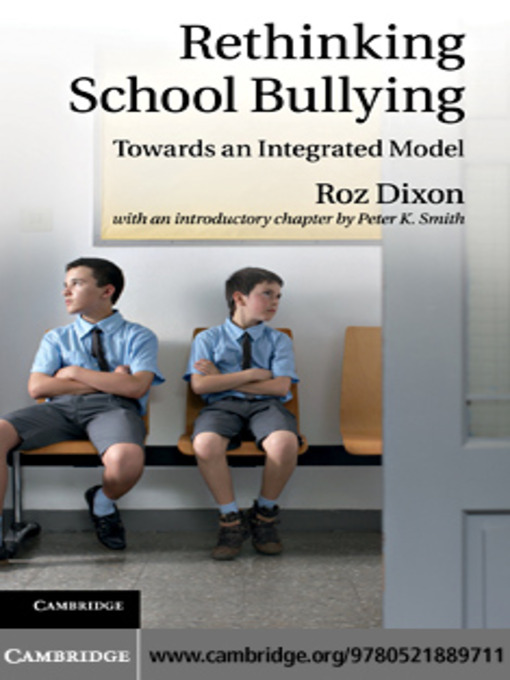-
Description
-
Creators
-
Details

- Roz Dixon - Author
- Peter K. Smith - Author
Kindle Book
- Release date: March 31, 2011
OverDrive Read
- ISBN: 9781139062671
- File size: 588 KB
- Release date: March 31, 2011
EPUB ebook
- ISBN: 9781139062671
- File size: 588 KB
- Release date: March 31, 2011
